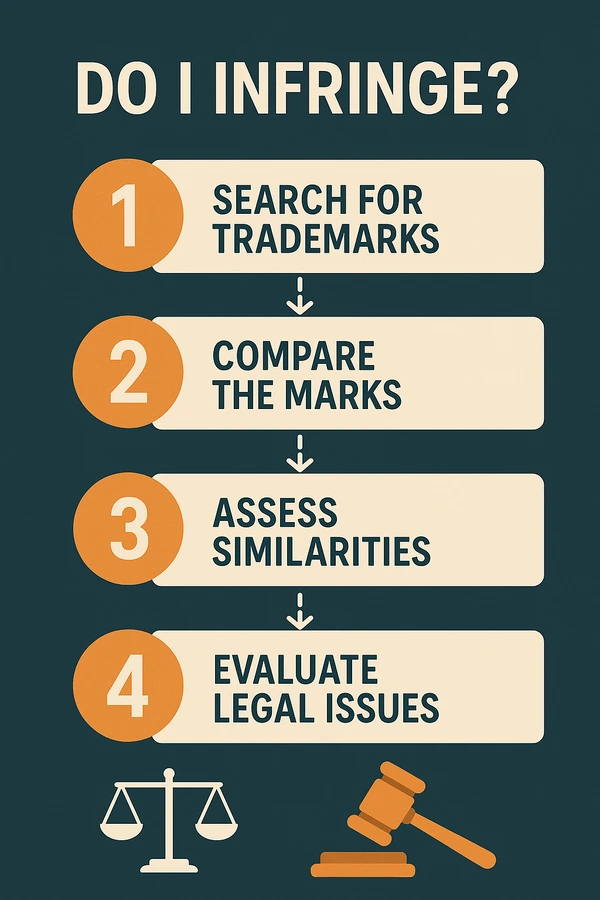Trademark Infringement – Staying Out Of Trouble
Can I trademark a similar word to someone else’s trademark? For example, if someone is using EXPRESSO for their coffee shop, can I use ESPREXXO? I get this question a lot. Business owners, entrepreneurs, and brand creators often wonder: Can I change one letter—or a few letters—of someone else’s trademark and get my own trademark?
It’s a great question! The issue comes up frequently during trademark registration with the U.S. Trademark Office. But the same rules apply when dealing with trademark infringement. If you’re considering trademarking a similar word, understanding the regulations is crucial.

Is Changing One Letter Enough?
Let’s say you tweak a trademark slightly. Maybe you change an “S” to an “X,” like in the question above. Is that enough to make it your own?
Probably not.
Trademark law does not focus on whether two marks are identical. Instead, it looks at whether a consumer might be confused about the source of the product or service. Attempting to trademark a similar word is likely to result in such confusion.
Trademarks serve an important role. They identify the origin of goods or services. If two trademarks look or sound too similar, consumers may think they come from the same company—even if they don’t.
How Trademark Confusion is Determined
To decide whether a trademark is too similar, the U.S. Trademark Office considers several factors. These factors are called the DuPont Factors, named after a trademark case involving the DuPont company.
These factors help determine how likely it is that consumers will get confused. Some of the key considerations include:
- Similarity in sight, sound, and meaning – Does the new trademark look or sound like an existing one?
- Relatedness of products or services – Are both trademarks used for similar types of goods?
- Consumer sophistication – Are buyers likely to notice small differences in wording?
- Marketing channels – Are both trademarks used in the same markets or sold in the same stores?
The more similar the trademarks—and the more overlap in their industries—the greater the risk of confusion if a similar word is trademarked.
Read more Information on Trademarks including using trademarks as Tag Lines.
Consumer Sophistication Matters
One of the DuPont Factors focuses on consumer sophistication. This can have a big impact on whether a similar word can be trademarked.
Some consumers are highly attentive when making purchases. For example, buyers who shop for automobiles usually research brands carefully. They won’t get easily confused if two car companies have similar names.
Other consumers, however, make fast, low-cost purchases without much thought. Beverage shoppers, for instance, may grab a six-pack without analyzing the label.
If a new soft drink brand tried to register the name “Mountain Do,” it would likely cause confusion with Mountain Dew (TM). Purchasing beverages isn’t expensive or otherwise a highly sophisticated activity. Consumers generally are picking up soda while grocery shopping for other items, or quickly grabbing a soda at a convenience store or fast food restaurant. They aren’t putting time and research into their decision. As such, consumers might assume “Mountain Do” is just another version of “Mountain Dew.” This illustrates the concept of “confusion” by the consumer, and highlights the challenges of trademarking a similar word.
In cases like these, trademark registration would likely be denied.
Why You Should Consult a Trademark Attorney
If you’re thinking of trademarking a similar word, it’s best to consult a trademark attorney before using or applying for registration.
An attorney can:
- Conduct a trademark search – Find out if similar marks already exist.
- Analyze potential risks – Determine if your mark could cause confusion with a similar word.
- Help with registration – Guide you through the application process.
Having professional guidance can save time, money, and legal trouble.
Learn More About Trademarks
Want more trademark insights? Check out how trademarks can be used as taglines and explore other trademark protection strategies.
And if you’re serious about securing your brand, visit the U.S. Trademark Office to learn more about working with a trademark attorney. It’s best to check with a trademark attorney before using or applying for a registration for a mark for your product or service. Find out what the US Trademark Office says about working with a trademark attorney.
